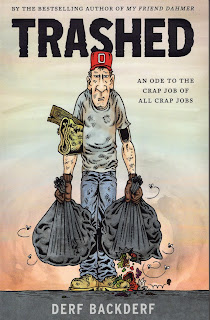
Laurent Binet, HHhH (London: Vintage, 2012). [unpaged] Translated from the French by Sam Taylor.
Reinhard Heydrich, who could have been strategically nurtured
to become Hitler’s successor, was killed after an attack on his car in Prague
in 1942. His nickname among the Czech people was ‘the Butcher of Prague’. It would
seem obvious he had few friends among them. Was his assassination an event that
entirely changed the course of WWII and therefore History? Perhaps it was.
 |
| Heydrich. (Photograph by Heinrich Hoffmann - Deutsches Bundesarchiv) |
Speculating with what might have been seems pointless, does
it not? Still, many believe the perpetrators of the attack should be praised
for ridding the world of such a cruel, evil person. And I would tend to
wholeheartedly agree. After all, he was one of the brains behind the so-called
Final Solution. The fateful day in the streets of Prague is the subject of Laurent
Binet’s novel, which won him a big literary prize in France, the Goncourt.
Binet, however, does not want to write a historical novel. Obviously,
he does not want to write history either. He’s no historian. He thinks that the
invention of facts or characters in a novel about a true event is nothing short
of a crime: fabricating evidence, more or less. I bet he dislikes books such as
Wolf
Hall or Bring
up the Bodies so much that he would refuse to read them point blank! Oh
well: his loss.
Being such an astonishing story of bravery and
self-sacrifice, the plot (i.e., the conspiracy to kill the monstrous Heydrich) should
be narrated with tantalizing detail. Except that Binet does not have any
verifiable new data he could use with absolute certainty. His struggle is with
the limitations of the novel as a genre. HHhH, Binet decides, has to
tell a story-within-a-story: the author’s obsession with how to approach and
tell a story about true events for which verified information is scant or
non-existent. Moreover, instead of numbering the pages, the publisher numbers
the parts (you can hardly call them chapters, can you?).
 |
| The Mercedes (possibly this very car, but who knows? And who cares?). Photograph by FunkMonk (Michael B. H.) |
The heroes’ names were Jozef Gabčík and Jan Kubiš. They were
trained in England and parachuted over Czech land. The resistance helped them
prepare the assassination, which funnily enough almost failed at the last
moment: Gabčík’s gun got stuck and stopped working, and therefore plan B was
quickly activated. It was Kubiš who threw a hand grenade into Heydrich’s Mercedes.
The infections caused by the wounds killed Heydrich about a week later. Mission
accomplished?
Yes, but the Nazi retaliation was brutal, as could have been
predicted. Lidice, a village near Prague, was completely destroyed. Their inhabitants
were either murdered or sent to a concentration camp, where most of them eventually
died. The Czech heroes hid, together with five other members of the resistance,
in a Prague church. Betrayed by one of their own, they were found and attacked.
They lasted many hours and drove the German soldiers and their commanders spare.
None of them were captured alive.
 |
| The Lidice Memorial reminds us all of what kind of bestiality the Nazis were capable of. |
The biggest objection I have in regard to this book is Binet’s obsession
with his own obsessiveness. It constantly gets in the way of the story itself. That
may be fanciful and fun to begin with, yes. But Binet overuses the device. His
authorial presence is more than an attendance: it can become a burden! I did
not think this book is as accomplished as The
7th Function of Language, but I’m looking forward to reading
his new publication, Civilizations. |
| Hoping to read you soon again, Laurent. Photograph by G. Garitan. |







































